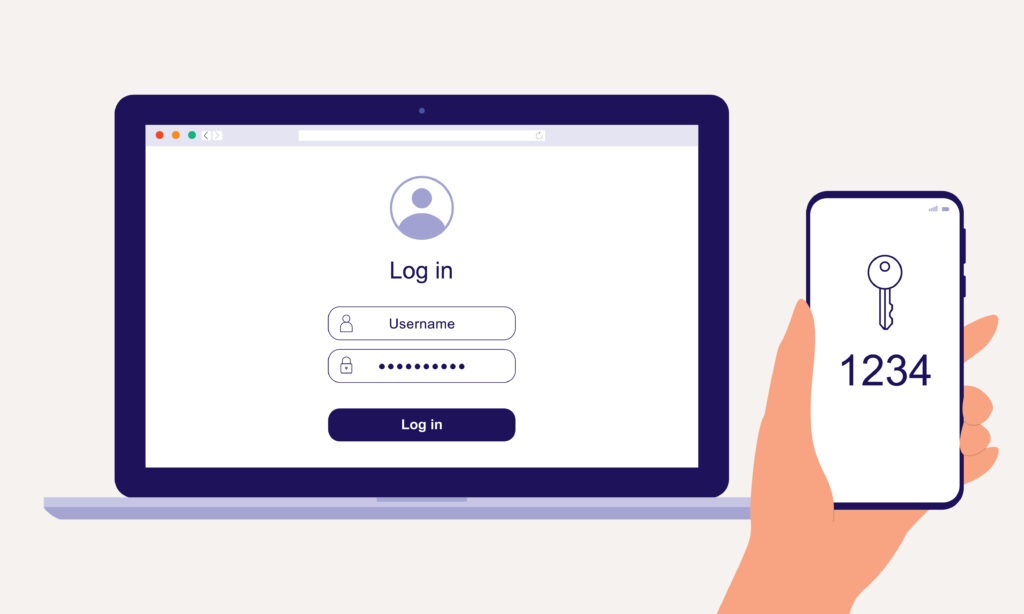While the history of VoIP dates back to the 1970s when the internet was still an academic project, commercial VoIP was not available until 1995 when the VocalTec Internet Phone was introduced to save users money when making long-distance calls. With the rapid adoption of the Internet, VoIP has grown not just in popularity among businesses but also in the adoption of new features to meet changing demands.
This article will highlight:
Why you need VoIP for your large or small business
Over the past few years, many businesses and companies have adopted more internet-based technologies to support remote working. This has given rise to working models such as hybrid working. A Voice Over Internet Protocol phone is one tool that makes hybrid work models function seamlessly for businesses as VoIP phones are flexible and allow employees to use them when working remotely.
However, there are some factors you should consider before adopting VoIP for your business. This includes whether the bandwidth the organisation or home is operating at is sufficient enough to support the number of calls you expect to make or receive. If the bandwidth can support such calls, then VoIP is a good option over traditional landlines.
Voice over Internet Protocol (VoIP) allows multiple calls to an organisation at the same time without the need to queue the calls to the different departments. This makes this phone system ideal for a business that receives multiple calls from multiple stakeholders who are forced to queue and wait for their turn.
Advantages of VoIP for large businesses
Enterprises of 250 staff or more require reliable phone and communication systems to ease the flow of information on a local and, in some cases, international scale. There are lots of advantages that large business enterprises reap from using Voice Over Internet Protocol as opposed to conventional landline phones and PBX telephone systems.
Low costs
Landline phone charges rely on airtime and the cost of a call is based on whether you’re making the call during peak or off-peak hours, the duration of the call and whether the call is local or international. VoIP relies on internet connectivity to make calls. This makes the costs of operating VoIP phones relatively cheap compared to traditional landline telephones. Many large enterprises make international calls to remote employees, business associates or contractors and the cumulative cost of making international calls via landline phones is relatively high compared to Wi-Fi costs associated with the smooth operation of VoIP phones.
Higher call quality
In the past, VoIP phones gained notoriety for poor call quality. This was largely attributed to low internet speeds at the time. However, over time, calls have greatly improved with the emergence of faster broadband internet packages. Most VoIP phones require an internet speed of 100kbs per upload and download per line. To support remote and hybrid workers, internet service providers in Australia now offer increased speeds for their home internet packages. This means that the quality of VoIP calls will continue to improve.
Higher scalability
Scalability is the ability of a phone system to handle an increasing workload without becoming slow. Large enterprises that experience growth will need to have a phone system that can handle an increased number of calls. A VoIP phone system can be adjusted to suit business needs and, in this case, adjusted to cater for more calls.
Future proofing
VoIP is prepared to meet the future needs of large businesses due to its cloud-backed technology. In 2022 Telstra phased out all ISDN technologies in Australia which included ISDN-hinged telephones. However, businesses relying on VoIP technology were not affected as VoIP telephony uses cloud technology while ISDN phones rely on data cables. Over time, VoIP service providers have added additional features that enable telephony to adapt and keep up with the demands of an ever-changing world.
Better security
VoIP telephone calls are routed through the internet as opposed to landline telephone calls which are routed through a Public Switched Telephone Network (PSTN). This leaves landline telephones vulnerable to wiretapping and external interference. This can lead to the loss of confidential information that would aid a potential cyberattack on a large firm. According to a report from the Australian Cyber Security Centre, large firms in Australia lost $62,223 to cyber attack incidents between 2021 and 2022 with the majority of the attacks falling under the categories of fraud, shopping, investments and online banking.
VoIP telephony uses advanced security features such as end-to-end encryption which reduces the risk of external parties gaining access to the contents of a call.

Benefits of VoIP for small businesses
As of August 2022, small businesses in Australia made up 95% of businesses operating in the country. Just like larger companies, smaller businesses can use VoIP to solve numerous communication challenges.
Ease of configuration and maintenance
As opposed to landline telephones, VoIP phones are easy to configure and maintain. Most VoIP for business phones come with an installation guide that does not require technical expertise to have it up and running as opposed to landline telephones where technicians are required to install and connect the hardware to a Public Switched Telephone Network.
For small businesses operating within a limited budget and workforce, this is advantageous as they can save on the costs and resources attributed to finding an appropriate technician for each new installation.
Complete portability
Most VoIP service providers including RingCentral offer an option to port your existing number either for free or at a monthly fee should you change the service provider. Changing numbers in a business increases the risk of identity theft and could have a wider impact on organisational operations such as sales and customer service. For small businesses trying to build a reputation, consistency is key and VoIP could mitigate the challenges faced by switching a telephone service provider.
VoIP also offers the ability to use the same phone system should you change office locations or choose to work from a different geographical location. This is opposed to a public switched telephone network where phone numbers are tied to a certain geographical location based on dialling codes.
The portability aspect is convenient to many small businesses and founders where employees may be working from their own houses or social coworking spaces.
Affordability
The costs incurred when making calls are fewer with a VoIP phone system compared to landline and traditional PBX phones. With landline phones, the cost of the call is determined by a myriad of factors including the time spent on the call, the location of the person you’re talking to and the time of the day the call is made.
While the installation costs of VoIP phones may not be cheap for small businesses, the subsequent operation costs are relatively low compared to landline phones.
Smart features for small businesses
Most VoIP service providers including RingCentral offer smart packages to cater to small and medium-sized enterprises (SMEs). Some of the features offered include room for scaling that allows small enterprises to change their packages to meet growing business demands.
Advanced call analytics allows small businesses to analyse data including call duration, customer satisfaction and revenue generated from telesales. While CRM integration allows businesses to access customer data to improve goods and service delivery.
Disadvantages of VoIP
Compared to other forms of business telephony services, Voice over Internet Protocol has its own set of challenges. Some disadvantages associated with VoIP are easily fixable by choosing the right provider.
Full reliance on power and the Internet to operate
VoIP requires a reliable high bandwidth connection to operate. While this may not be a particularly big problem to the day-to-day operations of businesses, this could prove to be a problem. In cases where the internet connection is poor this could greatly impact the quality of the call and the ability of employees to communicate clearly.
Limited tracking for emergency calls
The portability of VoIP telephones means that it can be quite difficult to trace the origin of a call unlike in the case of landline telephones where fixed dialling codes can give clues to the responders making it easier to get help in case of an emergency.
When choosing a VoIP service provider, it is important to learn about the policies put in place to handle emergency calls on their service. RingCentral offers a service to refer emergency calls to nearby emergency responders in cases where the location of the device was registered in advance and location information is provided accurately.
VoIP phones may be targeted by cyberattacks
Just like any other internet-based service, VoIP telephony is prone to cyber-attacks.
Some of the attacks that VoIP phones are prone could include
Phishing where cybercriminals pretend to be associates of a legitimate organisation to lure their victims to trust them and share their details. This could lead to identity theft through VoIP telephony.
DDoS attacks– Distributed Denial of Service is an attack where attackers target certain elements of the VoIP services using infected malware eventually crippling its ability to work.
How RingCentral minimises the occurrence of cyber attacks on its VoIP telephony service
Here at RingCentral, we take cyber security very seriously. As well as investing in the latest cyber-security technology, we always keep our security policies updated to mitigate and minimise the occurrence of cyberattacks.
We have numerous ways to ensure our VoIP phone systems are secure from cyber-attacks. This includes
- Encrypted calls and messages both at rest and in transit
- Identifying and blocking any malicious calls
- Authenticating calling numbers through the caller ID system.
Originally published 24 May, 2023





